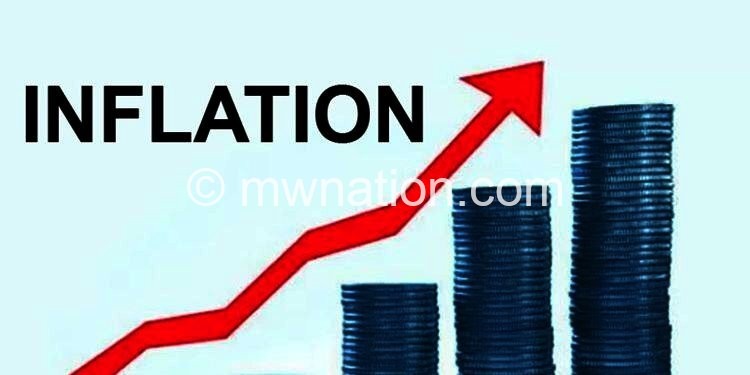November inflation rises to 33.1%
Malawi’s year-on-year headline inflation rate for November 2023 has quickened by 6.2 percentage points to 33.1 percent largely due to increases in food and non-food items, published figures from the National Statistical Office show.
The rise in inflation has further reduced the purchasing power of consumers who are reeling from the effects of 44 percent kwacha devaluation in November.

Following the devaluation, prices of fuel, electricity, maize and other basic items, which have a bearing on inflation, have been on the rise, threatening inflation prospects going forward.
In its 2023 Consumer Price Indices, NSO data show that during the month under review, food inflation increased to 41.7 percent from 34.5 percent while non-food inflation rose to 22.2 percent from 17.6 percent, from the previous month.
In an interview yesterday, both Economics Association of Malawi president Betchani Tchereni and economist Bond Mtembezeka said the rise was expected following the devaluation.
Said Mtembezeka: “The inflation increase is rather expected as prices of goods and services have increased across the board following the devaluation.”
On his part, Tchereni said “most of the inflation is imported”.
Consumers Association of Malawi executive director John Kapito said inflation rise has worsened by the huge devaluation the kwacha.
Following the devaluation, the average cost of living for the month under review also increased by approximately nine percent to K433 793 in November, according to data compiled by Centre for Social Concern.
Inflation, the rate of the general rise in prices over a given period of time, has been on the rise for the past 12 months to August, largely due to increase in food and non-food items.
However, in September and October, Malawi’s year-on-year inflation declined to 27.8 percent and 26.9 percent, respectively.






One Comment